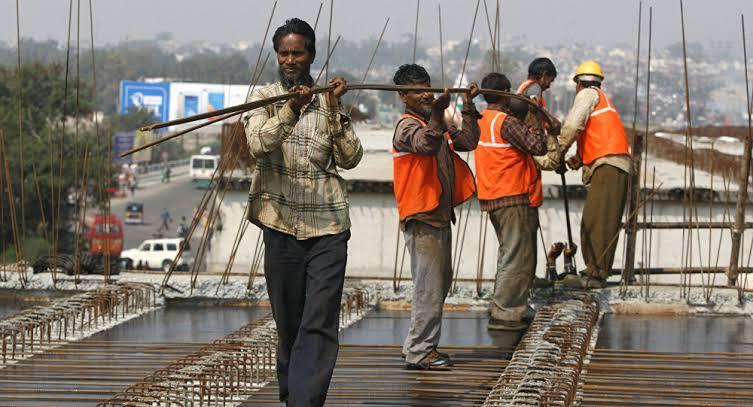Sham Consultations, Provisions Not Even Known To Us: Central TU Leaders on Approval of IR Code Bill

Leaders of central trade unions, namely, Centre of Indian Trade Unions (CITU) and All India Trade Union Congress (AITUC) have said that the claim—that consultation with trade unions took place prior to the approval of the labour code on Industrial Relations 2019 by the Union Cabinet—made by the Finance Minister Nirmala Sitharaman on Wednesday is a “lie”.
According to the TU leaders, the last meeting on the draft was held in the year 2015 only in which the workers’ fronts vehemently voiced their opposition to the provisions of the Industrial Relations code.
Now, as the Centre has passed the Bill to be introduced in the ongoing winter session of Parliament, the leaders claim that the provisions of the approved bill “are not known to them”, accusing the Modi government of “killing the tradition of tripartism” within the labour affairs.
The Union Cabinet on Wednesday gave its nod for the Industrial Relations Code Bill, 2019—the third out of four labour codes—to be introduced in Parliament. The code seeks to subsume three central laws, namely, Industrial Disputes Act, 1947, the Trade Unions Act, 1926, and the Industrial Employment (Standing Orders) Act, 1946.
While briefing the media, Sitharaman added that Labour and Employment Minister Santosh Kumar Gangwar spent a lot of time in consultation with all stakeholders including trade unions, as reported by the Economic Times.
Calling it a “sham”, Amarjeet Kaur, general secretary of AITUC told NewsClick that the bill in its present form was never presented before the unions.
“We don’t know which of our objections have been considered and which have not been. The bill will be introduced in the Parliament and then if it is passed, so will be the case, meaning that the voices of the trade unions will not be heard,” she said.
The stance that the due tripartite meetings were not held before the approval of the Union Cabinet was also reiterated by K Hemalata, president of CITU.
The Industrial Relations code seeks to formulate laws surrounding the composition and the rights of the union, among other things. As a result of which, it holds upmost importance to the trade unions and federations as the bill determines the functioning of the representatives of the workers in the post-codification India.
Moreover, this is not the first time that the objections raised by the unions were overlooked by the Modi government while deciding upon labour affairs. The other two codes—Code on Wages and Code on Occupational Safety, Health and Working Conditions—were no exceptions, the leaders contented.
“First, the recommendations sent to the standing parliamentary committee on the wage code were not accepted and now the recently released draft rules does not provide any clarity,” Kaur said.
Though tripartite meetings were held for consultation over the OSH code, Kaur added that they were “region-wise in nature meaning none of the central union leader could have attended them”.
Earlier, in August this year, Parliament approved the Code on Wages Bill, while the OSH Code Bill was referred to the standing committee on October 9.
Both the central trade union leaders are now waiting for the Industrial Relations Code Bill to be released to the public so that a detailed study of them becomes possible. Their only fear is that it will be too late, which is, according to them, what the Modi government wants.
As per the PM India’s website, the government has withdrawn its proposal to increase the threshold count of workers to 300 for prior government approval before retrenchment. The factories with up to 100 workers can lay off workers without government’s nod presently and which shall remain so.
“The media has reported that the government has done so taking the opposition from the trade unions into consideration,” Hemalata told NewsClick, “however, what we actually demanded was to further bring down the threshold, which the government didn’t do.”
“With the globalisation of the assembly lines and setting up of numerous intermediaries which engage in manufacturing of the components, it has become easier for the factory owners to keep the total strength of the workforce in their facility below 100, which allows for easy retrenchments. The retention of the threshold provides no hope to,” she added.
Besides, in the past, industrial states such as Gujarat, Maharashtra, Haryana and others have allowed retrenchment of workers within factories with 300 workers without official sanction. The provisions under the Industrial Relations code do not override the amendments brought in by the states, Business Standard reported.
This means that even if the present form of the code progresses to become a law, certain provisions won’t be applied to the whole nation, especially in the states that accommodate major industrial establishments. To whom will such an arrangement benefit, is the burning question.
Get the latest reports & analysis with people's perspective on Protests, movements & deep analytical videos, discussions of the current affairs in your Telegram app. Subscribe to NewsClick's Telegram channel & get Real-Time updates on stories, as they get published on our website.
























